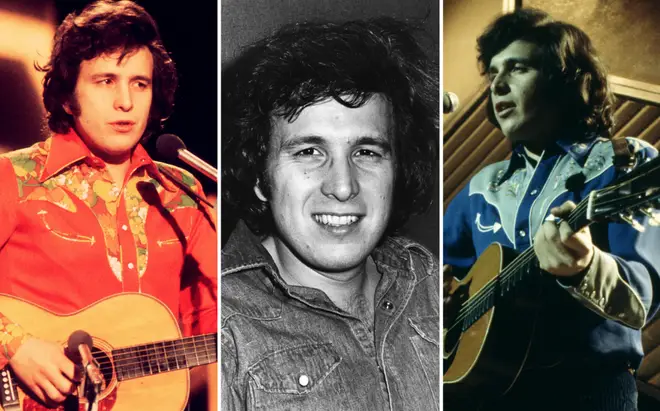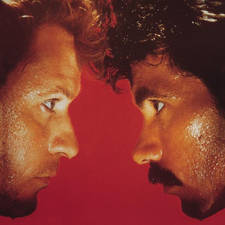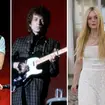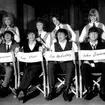Don McLean's 10 greatest songs, ranked
28 March 2024, 17:30

Listen to this article
Don McLean is a one-of-a-kind talent.
Few artists possessed such a wistful way with words, and coupled with his knack for melody, McLean became one of the most adored singer-songwriters of the 1970s and beyond.
Though, if it wasn't for his determination to succeed as a musician, we might not have his sanguine or tearfully sad songs to soundtrack our lives.
When he was starting out as an artist in Berkeley, California in the late sixties, his debut recording (which later became his lauded album Tapestry) was rejected 72 times by record labels.
Of course, it was eventually picked up, with the environmentalist title song even going on to inspire the formation of Greenpeace, strangely enough.
- Gold Meets... Don McLean: Singer recalls 'magical' moment he recorded 'Crying' with Elvis Presley's band
- 'American Pie' by Don McLean: The making of The Day The Music Died epic
- Don McLean says modern songwriters don't have brains because of phones and computers
- Don McLean picks up Hollywood Walk of Fame star with 27-year-old girlfriend
From then onwards, a series of era-defining hits established Don McLean's reputation as the "American Troubadour" or "King of the Trail" as he's known to his loyal fanbase.
Inducted into the Songwriters Hall of Fame in 2004, McLean is rightly regarded as one of contemporary music's brightest songwriting talents over the past fifty years or so.
To prove his illustrious (and perhaps unfairly overlooked) legacy as an artist, we've ranked Don McLean's ten greatest songs from top to bottom.
-
'Dreidel'

Dreidel
Opening his eponymous third album in 1972 with buoyant folk-rock stomper 'Dreidel', Don McLean proved he was anything but a one-trick pony.
Though a dreidel was a spinning top used by Jewish children during the Hanukkah season, it's not a festive song.
Don's reference was merely to illustrious the ceaseless pace of life, suggesting that we take the foot off the pedal and admire the slower, peaceful moments when we can.
Receiving moderate airplay upon its release, 'Dreidel' entered the top ten of the US Adult Contemporary chart as well as the Canadian charts.
-
'The Flight Of Dragons'

The Flight of Dragons (Title Song) - Don McLean
A bit of a rarity given it was never officially released as a soundtrack, but 'The Flight Of Dragons' is one of McLean's more obscure and fascinating performances.
Singing the title track to the 1982 animated fantasy film, the lyrics were actually penned by composers Jules Bass and Maury Laws, an unusual instance for Don.
Don offers a haunting, nostalgic take on the story which was adapted from the book of the same name.
But the song perfectly mirrors the mythical magic of the animation, inspiring a generation of children to immerse themselves in history, science, and fiction all at once.
-
'Crying'

Don McLean - Crying • TopPop
After taking a punt on 'Since I Don't Have You', McLean recorded another impressive cover for the 1978 album Chain Lightning with 'Crying'.
A bonafide classic, the song was originally written and released by Roy Orbison who 'Crying' is synonymous with.
Even so, Don plumped Roy to the top of the UK charts after the 1980 single release of his version, when Orbison could only reach number two.
Having stamped his easy listening style on 'Crying', McLean achieved his second-biggest hit in the US.
-
'Till Tomorrow'

Till Tomorrow
A meditative ode to patiently waiting for love to find you, 'Till Tomorrow' typified Don McLean's optimistic songwriting.
Released on his 1971 album, American Pie, it was often overlooked by the title song, like the majority of his music.
Gentle and curious, McLean affirms to his love-in-waiting: "You will be mine, and my sorrow will take wings in the morning."
With its beautiful chord structure and twinkling keys - which resemble raindrops trembling down a window pane - it's hard not to fall in love with 'Till Tomorrow'.
-
'Since I Don't Have You'

Since I Don't Have You
Channelling doo-wop didn't do Don McLean any harm after he recorded a cover version of 'Since I Don't Have You'.
Originally a hit for The Skyliners in 1958, McLean had a bash at a song which meant a lot to him as a wide-eyed youngster wanting love.
A slight diversion away from his usual soothing style, at points in the song he even belts out a powerful falsetto.
Nevertheless, people enjoyed his take on a classic, with 'Since I Don't Have You' reaching the top ten of the US Adult Contemporary chart in 1981 despite being released three years earlier on the 1978 album Chain Lightning.
-
'Empty Chairs'

Empty Chairs
Don McLean was having a rough ride during the recording of his 1971 album, American Pie.
Facing divorce and depression, he sought comfort in the works and life of Vincent Van Gogh, with 'Empty Chairs' inspired by his paintings of a chair.
The plaintive song has a major impact, even inspiring singer-songwriter Lori Lieberman to write 'Killing Me Softly With His Song', which was later a major hit for Roberta Flack.
Recalling the night she saw McLean perform 'Empty Chairs' at Los Angeles' Troubadour Club, she said: "I didn't know who he was, but from the moment he walked on stage, I was spellbound. I felt as if he knew me and his songs were about my life. I felt like he sang into my soul."
-
'Castles In The Air'

Castles in the Air
'Castles In The Air' was the opening song from Don's 1970 debut album, Tapestry, though made little impact after its initial release.
This was one of his early songs that made the cut, when McLean and fellow folk troubadour Pete Seeger would hone their craft, often performing together on the East Coast folk circuit.
Written about a disillusioned city dweller who leaves his socialite girlfriend, the song hints at McLean's own weariness living in New York, which perhaps encouraged him to relocate to California where he'd record Tapestry.
After financial problems with his first label Mediarts, United Artists eventually bought them out and offered McLean serious backing, with 'Castles In The Air' being rightly revisited years later as one of his finest works.
-
'And I Love You So'

And I Love You So
Another timeless song of Don McLean's which was slept on after its original release, until Perry Como covered 'And I Love You So' several years later.
Elvis Presley then discovered the ruminative song, and loved it so much he himself covered it, going on to perform the song in every concert until his death.
Countless artists have gone on to cover 'And I Love You So' since, including Johnny Mathis, Shirley Bassey, Glen Campbell, Olivia Newton-John, Engelbert Humperdinck, and Harry Belafonte.
Embracing the fleeting nature of life by searching for love in every moment, folk music doesn't come as life-affirming as this.
-
'Vincent'

Don McLean - Vincent (Starry Starry Night) (1972)
It's unlikely many artists have found a kindred spirit in tortured painter Vincent Van Gogh, but Don McLean did during a period of darkness in his life.
Inspired by Van Gogh's life and paintings, he references 'The Starry Night' in the lyrics, the iconic piece which Van Gogh created after committing himself to an asylum.
Sympathising with Van Gogh's struggles, McLean sings "how you suffered for your sanity", relating to the darkness he felt without minimising the painter's evident mental instability.
After reading a book written by Vincent's brother Theo, Don later recalled: "I'm looking through the book and fiddling around and I saw the painting. I said, Wow, just tell the story using the colour, the imagery, the movement, everything that's in the painting. Because that's him more than he is him."
'Vincent' is a beautiful ode to society's outcasts, one that resonated widely given it went to number two in the US Adult Contemporary charts, and number one in Italy, Ireland, and the UK.
-
'American Pie'

Don McLean - American Pie (Lyric Video)
What else could it be? 'American Pie' is undoubtedly Don McLean's most iconic and enduring song, one that's so embedded in pop culture you couldn't argue otherwise.
The title track from his 1971 album of the same name was inspired by the death of Buddy Holly, repeating the phrase "the day the music died" which was attributed to the event in which Holly's planed crashed, tragically ending his, Ritchie Valens, and 'The Big Bopper' J. P. Richardson's lives.
Cryptically eluding to the cultural change with each generation and the profound disillusionment that comes with it, 'American Pie' became one of the most debated songs of the 20th century in terms of its symbolism.
It also clocked in at 8 minutes and 42 seconds, becoming the longest song to reach the number one spot in the US. Until Taylor Swift broke that fifty-year record in 2022. She then sent McLean a handwritten note reading: "I will never forget that I'm standing on the shoulders of giants".
'American Pie' skyrocketed McLean to global success, which irked the folk purists - he went from singing around campfires to selling out major venues. "It ruined my career because I was immediately branded as a sellout," he revealed to Songfacts.
Nevertheless, 'American Pie' remains inextricably tied to popular culture, with Madonna reiterating the song's importance years later after recording it herself.
"People ask me if I left the lyrics open to ambiguity. Of course I did," Don later professed. "I wanted to make a whole series of complex statements. The lyrics had to do with the state of society at the time."
It's a time capsule of a bygone era, which is likely why music lovers hold it dear to this day. Turns out, the music never died at all.












